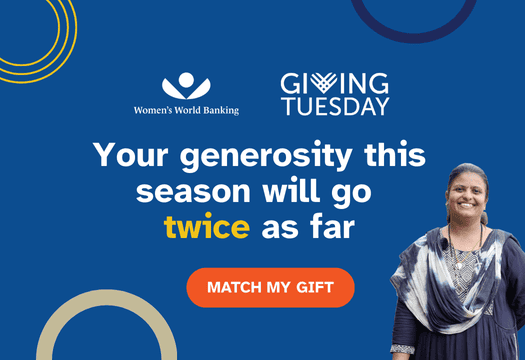Abuja, Nigeria – 21 August 2025 – Women’s World Banking (WWB), in partnership with the Presidential Committee on Economic and Financial Inclusion (PreCEFI), convened a high-level Stakeholders’ Workshop on Women’s Digital Financial Inclusion (WDFI). The convening directly supports Nigeria’s aspiration to build a Trillion-Dollar Economy by unlocking women’s full economic potential through increased access to and usage of financial services.
The interactive workshop explored collaborative partnerships in advancing WDFI in Nigeria bringing together stakeholders from public and private sector, including the Central Bank of Nigeria (CBN), Nigeria Inter-Bank Settlement System (NIBSS), National Insurance Commission (NAICOM), Nigerian Communications Commission (NCC), Bank of Industry (BOI), Deposit Money Banks, Microfinance Institutions, FinTechs, and Development Finance Institutions (DFIs).
The event was in furtherance of Nigeria’s national economic and financial inclusion goals of achieving 95% financial inclusion and closing the 9% gender gap in access to financial services. Stakeholders recognized that women’s economic empowerment is central to inclusive growth, poverty reduction, and achieving macroeconomic stability. Speaking as chief host, Dr. Nurudeen Zauro, Technical Advisor on Economic and Financial Inclusion to the President of the Federal Republic of Nigeria, emphasized that the synergy between PreCEFI and Women’s World Banking is undeniable. Both prioritize listening to women, designing services around their realities, and scaling impact. He also noted that the workshop was about aligning national and global strategies to accelerate progress towards Nigeria’s Trillion-Dollar Economy aspiration.
Uche Uzoebo, CEO of SANEF, commended Women’s World Banking on the partnership and for convening the event. She highlighted that SANEF’s collaboration with WWB is imperative as it will accelerate the penetration of agent banking, particularly in Northern Nigeria, thereby increasing the number of women with access to financial services.
In her remarks, Elizabeth Gathai, Regional Head, Africa, Women’s World Banking, emphasized Nigeria’s potential to lead Africa in women’s economic empowerment—boosting access to productive credit, halving financial exclusion in the North, and driving gender-intentional policies that close the gap. She reaffirmed WWB’s commitment to building a more resilient and inclusive financial system for women.” Other key contributors at the event include Dr. Aisha Isa-Olatinwo, CBN Director Consumer Protection & Financial Inclusion Dr. Rakiya Yusuf CBN Director Payment Systems Supervision Department, and Ngover Ihyembe-Nwankwo Executive Director NIBSS amongst others.
A Key highlight of the event was the signing of a Memorandum of Understanding (MoU) between Women’s World Banking and SANEF to expand the agent banking footprint and productivity for women in Northern Nigeria. The MoU, witnessed by Dr. Zauro, Head of PreCEFI, signifies a concrete step toward delivering the government’s inclusive finance commitments and ensuring that women are not left behind in the digital economy.
About PreCEFI:
PreCEFI, the Presidential Committee on Economic and Financial Inclusion, is a Nigerian inter-agency task force established by the Federal Government in February 2025 to accelerate economic reforms and bridge financial gaps, with a key focus on delivering cash transfers to 15 million vulnerable households and aligning stakeholders on financial inclusion strategies. Its goal is to improve access to economic opportunities and services, foster inclusive growth, and support the country’s objective of achieving a trillion-dollar economy by 2030.
About Women’s World Banking:
For over 45 years, Women’s World Banking has been dedicated to serving the nearly 1 billion women excluded by the formal financial sector. As an NGO, we partner with financial institutions and policymakers to design, develop and implement solutions and programs that facilitate systemic change for women. As an investor, we advance women in the workplace and as customers through direct equity – to bring them security, prosperity, and independence. Since 2018 Women’s World Banking has reached more than 86 million women helping to change not only their lives but also of their households, communities, and countries. To learn more about Women’s World Banking, visit womensworldbanking.org.
For more information, write to: er@womensworldbanking.org




